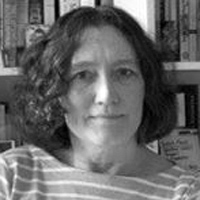“All modern American literature comes from one book by Mark Twain called Huckleberry Finn,” Ernest Hemingway wrote in 1935, and that book’s continuing ability to discomfit and enrage testifies to the power of Twain’s prose. He captured in print the blunt rhythms and salty wit of American colloquial speech, creating a distinctive national literary language that shaped the work of every writer who followed him. But he wasn’t alone in his quest to liberate American culture from sanctimony and sentimentality—a vibrant San Francisco publishing community played an instrumental role in helping Twain find his voice during a few seminal years in the 1860s, decades before Huckleberry Finn was published. This community is the focus of The Bohemians, Ben Tarnoff’s lively chronicle, which links Twain to three lesser-known writers in a fellowship of self-styled “Bohemians” who, in Tarnoff’s words, “would bring a fresh spirit to American writing, drawn from the new world being formed in the Far West.”

Bret Harte was their leader. He called himself “the Bohemian” in his columns for the San Francisco weekly, The Golden Era, not only asserting kinship with New York’s celebrated Bohemian enclave (which included insurgent poet Walt Whitman) but claiming California as the natural home of such free spirits. “Bohemia has never been located geographically,” he wrote in 1860, “but any clear day when the sun is going down, if you mount Telegraph Hill, you shall see its pleasant valleys and cloud-capped hills glittering in the West.”
Tarnoff draws a vivid contrast between sardonic, sophisticated, and sartorially dapper Harte, San Francisco’s literary star, and the unkempt, uncouth Mark Twain who rolled into town in 1863, a scuffling newspaperman looking to move on and up from provincial Virginia City, Nevada. But the author spotlights their mutual conviction that the West’s grand vulgarities and follies were fertile territory for writers. Harte and Twain’s close, competitive friendship altered the course of American literature, as they developed a prose and an attitude very different from those of the cultural authorities on the Atlantic coast: “ironic and irreverent [embracing] the devilish sense of humor that flourished in the communities of the frontier.”
Ina Coolbrith and Charles Warren Stoddard, two young poets who complete Tarnoff’s quartet of California Bohemians, never wrote anything with the galvanic impact of Twain’s “Jim Smiley and His Jumping Frog” or Harte’s “The Luck of Roaring Camp,” short stories that in 1865 and 1868 respectively brought frontier humor into the literary mainstream. Yet they formed with Harte the editorial trinity that guided the Overland Monthly, launched in 1868 to showcase West Coast writers, and their essays for it—Coolbrith’s quietly feminist, Stoddard’s celebrating the uninhibited tropical lifestyle he had relished in Hawaii—also expressed a distinctively Western sensibility, skeptical of Eastern pieties and proprieties.
Tarnoff is at his best in evoking the atmosphere of the city that shaped them all. San Francisco boomed in the aftermath of the 1848 California gold rush, which brought people from all over the world to its streets. “Densely urban, yet unmistakably western; isolated yet cosmopolitan; crude yet cultured,” he writes, “it had an acute sense of its own history, and a paganish appetite for mythmaking and ritual.” While the Civil War raged elsewhere, Californians enjoyed peace and prosperity, awaiting the completion of the transcontinental railroad they expected to make San Francisco the center of global trade between Pacific and East Coast markets.
In the pages of the Overland Monthly, however, local author Henry George warned that the railroad would bring a concentration of wealth antithetical to California’s wide-open, relatively egalitarian society. Indeed, the tone of The Bohemians darkens as first Twain and then Harte relocate to the East, where Harte’s career foundered while Twain crafted a public persona that brought him national fame and turned in his writing to the boyhood memories that would fuel his best novels. Neither one would ever again live in San Francisco.
The Overland Monthly folded in 1875, though it would later be relaunched to publish a new generation of California writers including Jack London, a ferocious socialist critic of the brutal industrial society Henry George had warned the railroads would create in the West. The Bohemians were supplanted by the Bohemian Club, where, in Tarnoff’s acid summary, “California’s postwar parvenus could playact at glamorous poverty.” He gives a final valediction for the original West Coast Bohemians to Ina Coolbrith, who stayed in San Francisco and took a job as a librarian. In 1906, following the cataclysmic San Francisco earthquake, she walked through the rubble of the bookstore where the Overland Monthly had been headquartered. That night she dreamed of Harte, who told her, “There is nothing left for us now. We’ll have to go away and leave it to those who are coming after us.”
Their legacy was the literary sea change wrought by Twain, whose genius would take him far from San Francisco, even as it remained firmly rooted in the discoveries he made there, nurtured by his Bohemian compatriots.






